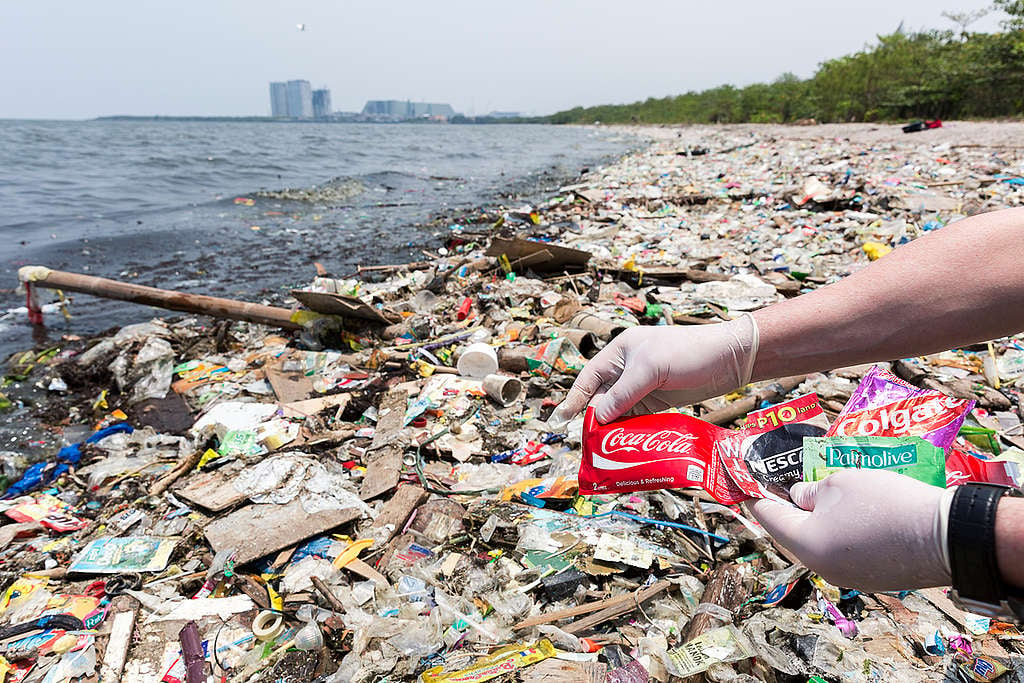
1. Baltimore Sues Pepsi, Coca-Cola, and Others for Alleged Role in Pollution Crisis
BALTIMORE, Md. — Baltimore officials have announced a landmark lawsuit against some major companies. The suit is against PepsiCo, Coca-Cola, Frito Lay, and plastic manufacturing companies for their roles in creating “a plastic pollution crisis.” Baltimore alleges these companies created a public nuisance by creating products they know will cause harm to the environment.
Recent studies show microplastics have even been found in human organs. When littered, these plastic bottles cause damage to wildlife. They contain chemicals that make their way into the water and soil. The mayor of the city, Brandon Scott, had this to say regarding the lawsuit: “We are continuously working to make Baltimore a greener, more resilient city that is ready to take on the climate challenges facing the entire world and one that prioritizes the health of our residents”.
Thank you for your generous gift that will help us continue the production of this weekly, free publication
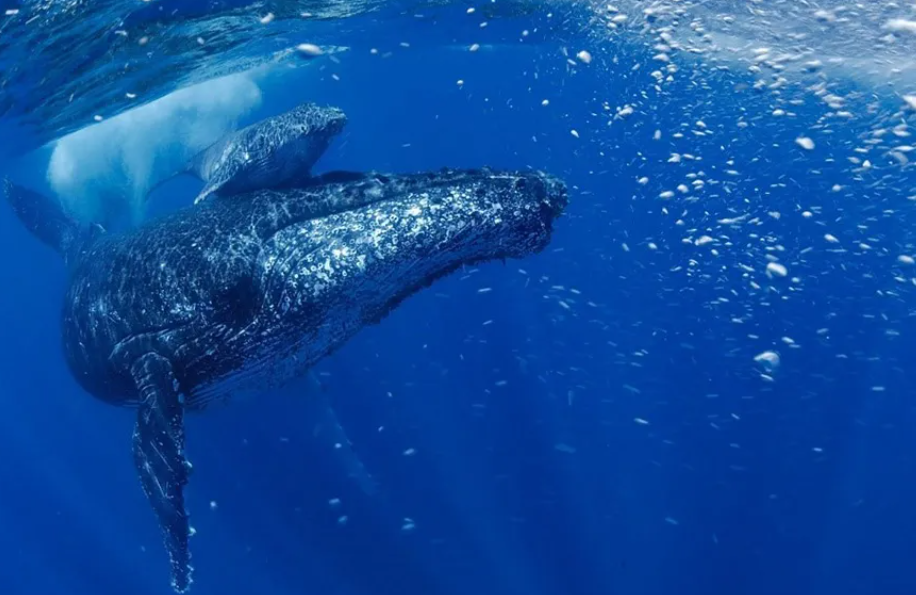
2. Humpback Whales Make a Majestic Comeback on Brazil’s Shores
These articles emphasize the role of marine observation tours in raising awareness and protecting marine life, with humpback whales serving as indicators of ocean health. They highlight the successful recovery of Brazil’s humpback whale population, which was nearly extinct due to hunting but has rebounded since the 1986 international whaling moratorium.
In the 1950s, only about 450 humpback whales were in the region. However, recent estimates indicate that their numbers have surged to approximately 25,000. This remarkable rebound is a testament to conservation efforts and the resilience of these majestic creatures.
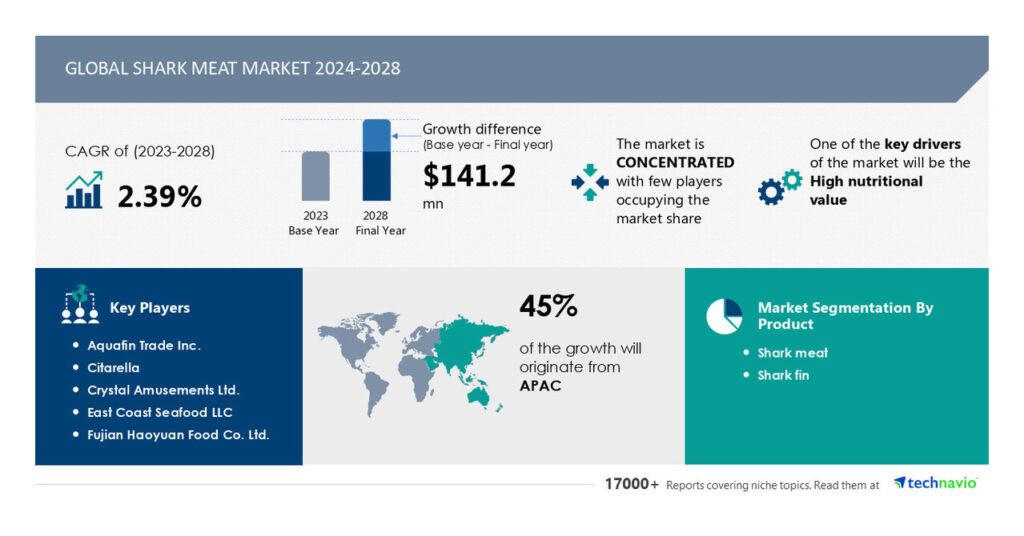
3. Shark Meat Market Size Is Set to Grow to 141 Million USD From 2024-2028
The global shark meat market is estimated to grow by USD 141.2 million from 2024-2028 at a Compound Annual Growth Rate (CAGR) of over 2.39%. High nutritional value is driving market growth, with a trend towards growing applications of shark body parts. However, overexploitation and depletion of fish stocks pose challenges. Shark fin, a traditional dish in many cultures, remains contentious due to its association with illegal fishing practices and animal welfare concerns.
The shark meat market is anticipated to expand due to the increasing demand for body parts in various industries. Traditional uses of shark fins and meat continue. Emerging applications include shark liver oil for cosmetics and health supplements, shark skin for leather and sandpaper, shark cartilage for anti-cancer medications, and shark teeth and jaws for jewelry and trinkets. These applications fuel the demand for shark fishing, thereby boosting meat production.
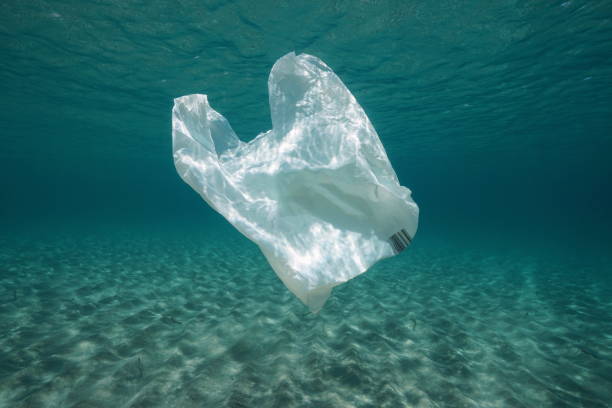
4. Kota Kinabalu’s No-Plastic Bag Policy Set to Clean up the City
KOTA KINABALU, Malaysia—Kota Kinabalu City Hall’s decision to enforce a no-plastic bag policy by August is a crucial step towards mitigating plastic waste. Upcycled Shack founder Tressie Yap said plastic waste is a major environmental pollutant. “Reducing plastic usage could significantly decrease pollution in water bodies and shorelines, protect marine life, and alleviate the strain on overburdened landfills,” the architect and designer said.
However, Yap, who has been living a zero-waste lifestyle and extending the lifespan of waste through upcycling for almost a decade, said that the success of this initiative depended on the availability and adoption of sustainable alternatives, strict enforcement, and widespread public education. She added that the policy was a strong commitment to environmental conservation and suggested it could serve as a model for other cities.
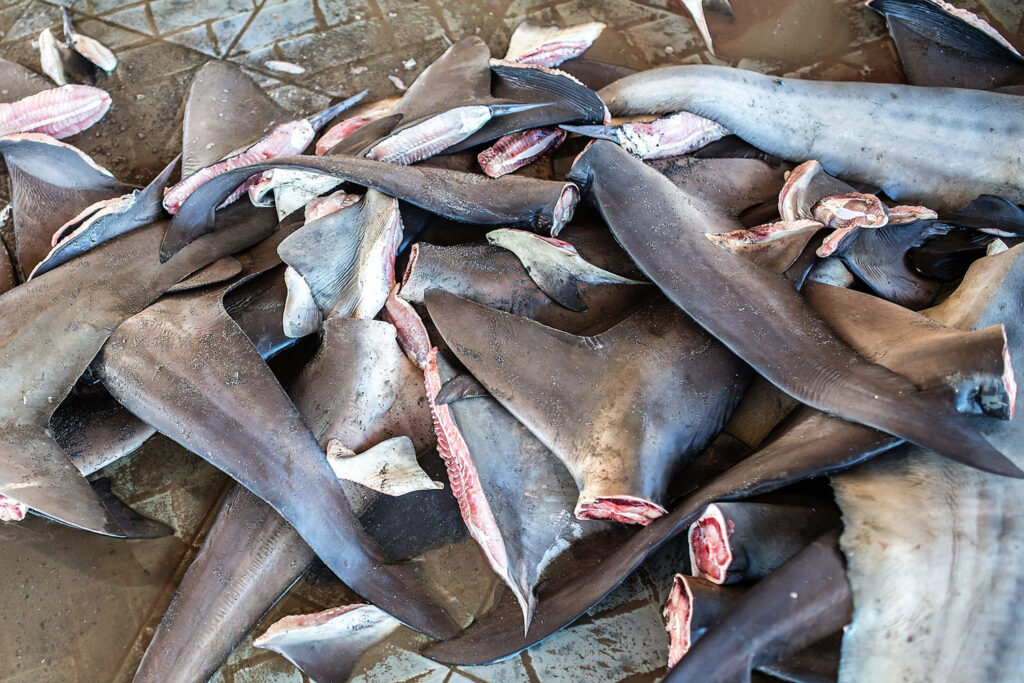
5. Taiwan-Flagged Ship Seized With 6.5 Tons of Illegal Shark Fins
How do you like to receive your information/news? Read it? Or Watch It? If watching is your style, the link below transitions to a video to present this story. Taiwan’s fisheries agency has seized a ship carrying illegal fins from an estimated 3,000 sharks. It’s the second time the Taiwan-flagged vessel has been busted for shark finning, a harmful practice that persists due to demand for shark fin soup.
Based on the title of this story, how many thousands of sharks were involved, and how many thousands of dollars was the fine?
Watch the video to see what the “fine” is.
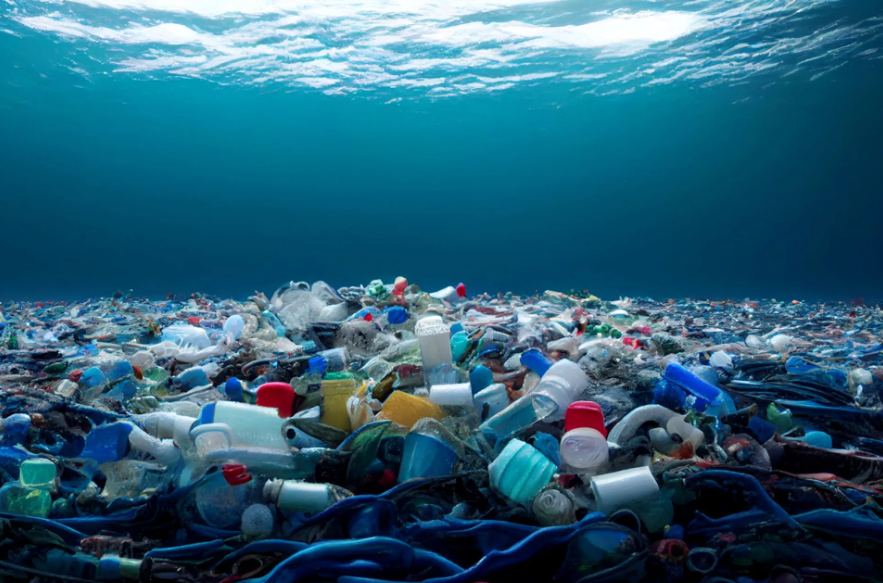
6. Plastic Credit for Waste Diversion
Philippines – The Plastic Credit Exchange (PCX) focuses on helping stakeholders at the top tier of the circular economy. From its roots as a non-profit in the Philippines, one of the epicenters of the global and ocean plastic pollution crisis. PCX Solutions is a registered producer responsibility organization (PRO) that works closely with each of its members to audit plastic waste footprints, craft upstream and downstream strategies, set goals, select solutions, and generate the reports needed for obliged enterprises (OEs) to meet their compliance obligations under the EPR law.
PCX Markets provides OEs access to high-quality projects that collect and divert specific types of plastic from a company’s footprint. Diverted plastic waste earns the so-called plastic credit from PCX, or one metric ton of plastic collected, recycled, upcycled, or co-processed away from nature.
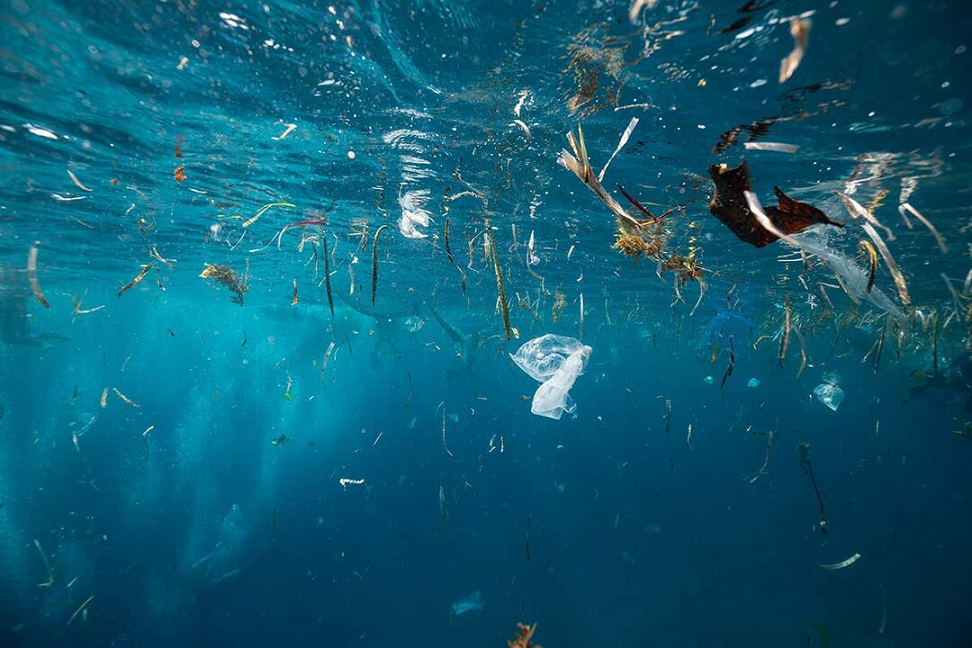
7. Punjab Chief Minister Congratulated for Enforcing Plastic Ban, Urges Others to Follow Suit
ISLAMABAD, Pakistan—The coordinator to the Prime Minister on Climate Change, Romina Khurshid Alam, said that the Punjab Provincial Chief Minister Maryam Nawaz Sharif’s ban on plastic bags was a long-awaited move to address the hazardous effects of plastic on the environment and human health. Chief Minister Maryam Nawaz Sharif enforced the province-wide ban on plastics on June 5; a move deliberately coincided with World Environment Day, which is marked globally on the same day.
The Punjab chief minister had announced weeks before that the provincial plastic ban policy would be strictly enforced, particularly in hotels, restaurants, and eateries, citing the detrimental effects of plastics on the environment and public health and stating that the “No to Plastic” campaign is core of the anti-plastic policy, which aims at reducing environmental pollution and promoting eco-friendly initiatives.

8. Japanese Government Emphasizes Carbon Credit Trading
Japan – In Kanagawa Prefecture, local fishers, and schools, working closely with the Hayama Eelgrass Council, began planting eelgrass in the town’s coastal seas to restore marine mollusk species. Their restoration work has gained added impetus as a “blue carbon ecosystem” which refers to the carbon dioxide sequestered and stored by coastal habitats such as mangroves and seagrass beds.
These highly efficient ecosystems occupy just 0.5% of the seafloor but contribute over 50% of oceans’ carbon burial, sequestering even more carbon by area than rainforests. While the deterioration of Japan’s coastal ecology has long concerned scientists, officials, and fishers, the government’s 2020 declaration is that Japan will reduce its greenhouse gas emissions to net zero by 2050. Blue carbon ecosystems also produce various “co-benefits,” such as supporting fisheries, protecting coastlines, and providing cultural value.
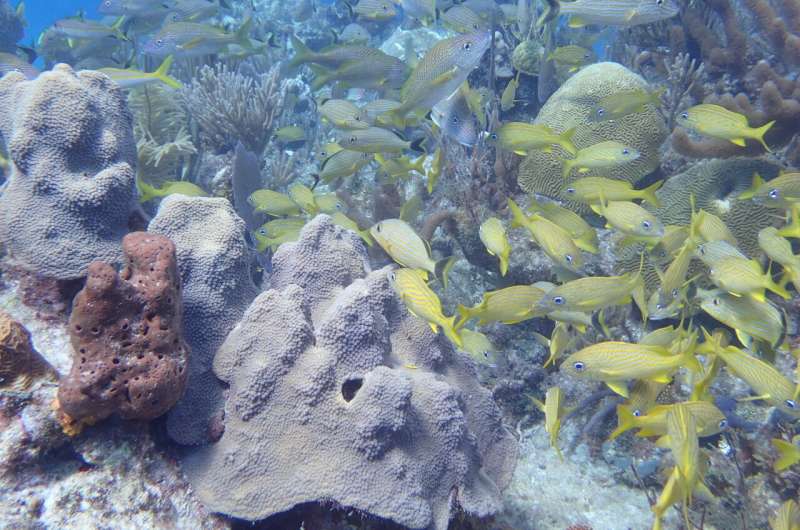
9. Researchers Show Coral Reef Compounds That Could Be Used to Monitor Disease Activity
Plants and animals living in coral reefs release various substances, from complex macromolecules to individual amino acids, into the surrounding water. Scientists learned to read these chemical clues emitted by marine organisms, which inform what species live in this coral reef and whether they are healthy. The researchers identified 23 metabolites that had yet to be identified near coral reefs by previous studies, including amino acids, amines, pyrimidine nucleosides, and organosulfonic acids, which are involved in photosynthesis and organismal growth.
When the researchers analyzed their data, they found that the presence of diseased coral, macroalgae, and crustose coralline algae had the most significant influence on the metabolite compositions. Some compounds, such as the organosulfonic acid called DHPS, were consistently at high levels in five coral reefs around the U.S. Virgin Islands, which suggests the presence of coral and associated organisms.
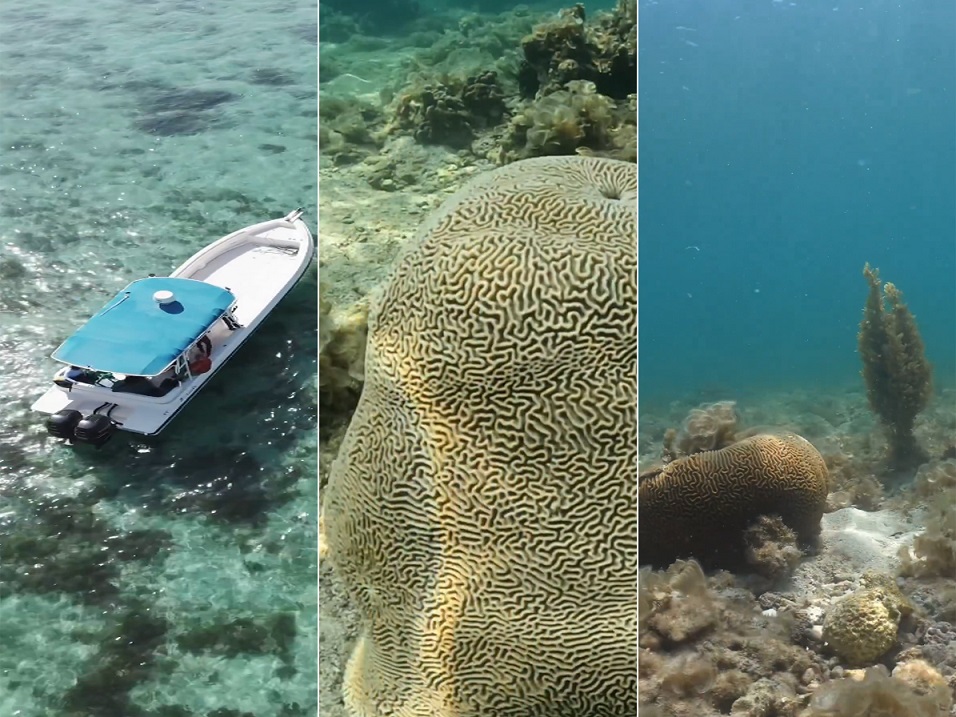
10. Qatari Territorial Waters Are Healthy, Making It an Environment Rich in Marine Biodiversity
DOHA, Qatar – Coral reefs are the oldest ecosystems on earth and one of the most important marine habitats in the Gulf region. The Ministry of Environment and Climate Change (MoECC) survey has shown that the marine ecosystem and coral reefs in Qatari territorial waters are healthy. The eastern and northern coasts of the country witness a high density of coral reefs. Qatar attached the utmost importance to programmes that support the preservation of biodiversity.
The Ministry of Environment and Climate Change intensified efforts to protect the marine environment. The Marine Protection Department called people, especially seagoers, to preserve the marine environment, not throw waste into the water, or use prohibited fishing tools such as multi-layered nylon fishing nets or fish in coral reef areas or prohibited areas. Coral reefs are among the most important natural assets in the Arabian region, particularly Qatar.
Editorial Comment: This article was written and sponsored by the American Chemical Society
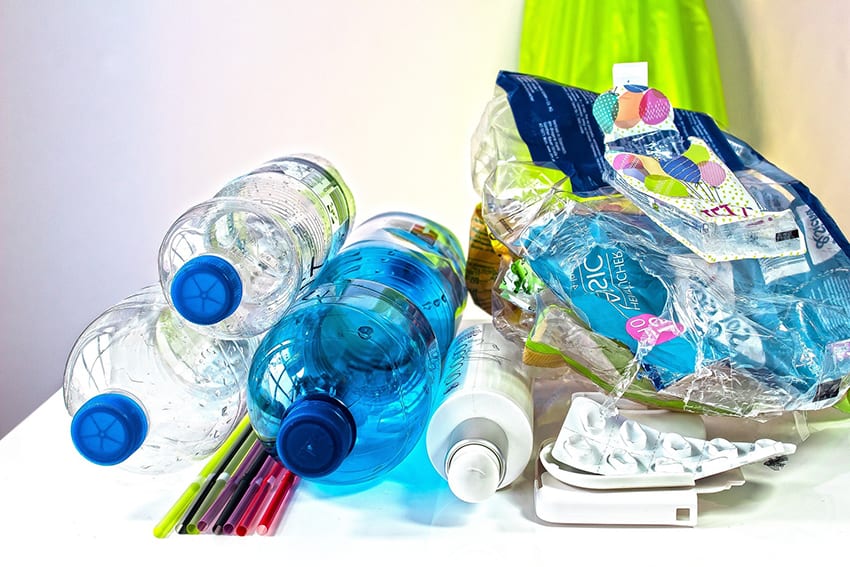
11. National Action Plan to Stop Plastic Pollution
Barbados — Barbados has taken the lead in the Caribbean, ahead of a ratified United Nations Plastics Treaty. On Wednesday, June 26, the Solid Waste Management Programme will launch a National Action Plan to End Plastics Pollution in Barbados by 73 percent over the next ten years. This plan is predicted to reduce some 4,713 tons of plastic waste from entering the land and sea, a significant undertaking for Barbados, as a small island developing state.
Plastics represent one of the most stubborn, persistent, and environmentally harmful categories of waste worldwide. As a result, the tackling of plastics will be incorporated into the existing framework of the Integrated Solid Waste Management Policy, which adopts a holistic approach to solid waste and plastics management.
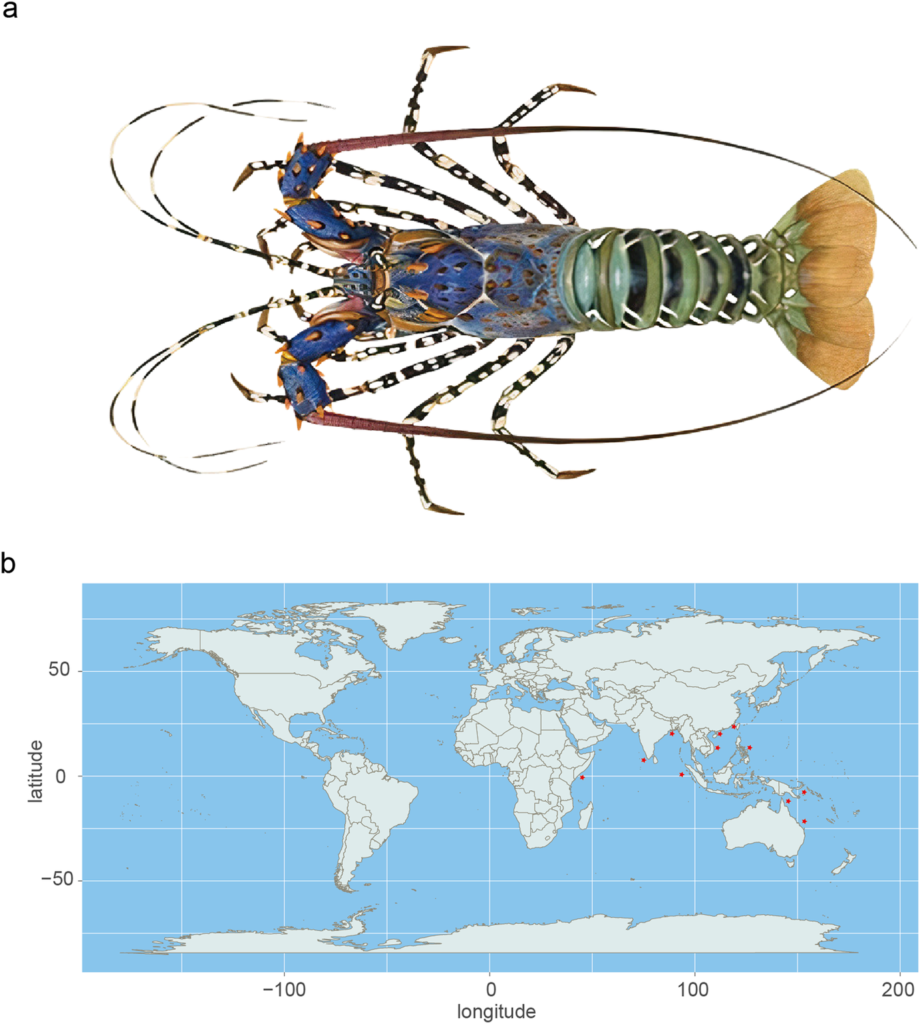
12. Genetic Code of the Long-Tailed Marine-Living Ornate Spiny Lobster, Panulirus Ornatus
Who does not enjoy a solid, intriguing Title Line? What does it mean? In simpler terms, scientists assembled a detailed “instruction manual” for the long-tailed marine ornate spiny lobster known as Panulirus ornatus. This genome provides valuable insights into the lobster’s genetics, conservation, and evolution. It’s like having a comprehensive map of the lobster’s genetic makeup! The ornate spiny lobster, Panulirus ornatus, is an endangered species found on coral reefs and coastal habitats in China, the South Pacific, and the Indian Ocean.
In global aquaculture, it ranks as one of the most valued and highly-priced fisheries and is consequently overexploited in unregulated fisheries. In 2021, the ornate spiny lobster (P. ornatus) was classified as a Second Class species on China’s National Key Protected Wild Animals List—a notable conservation milestone, making P. ornatus the first crustacean to be recognized and included in this crucial protection list.
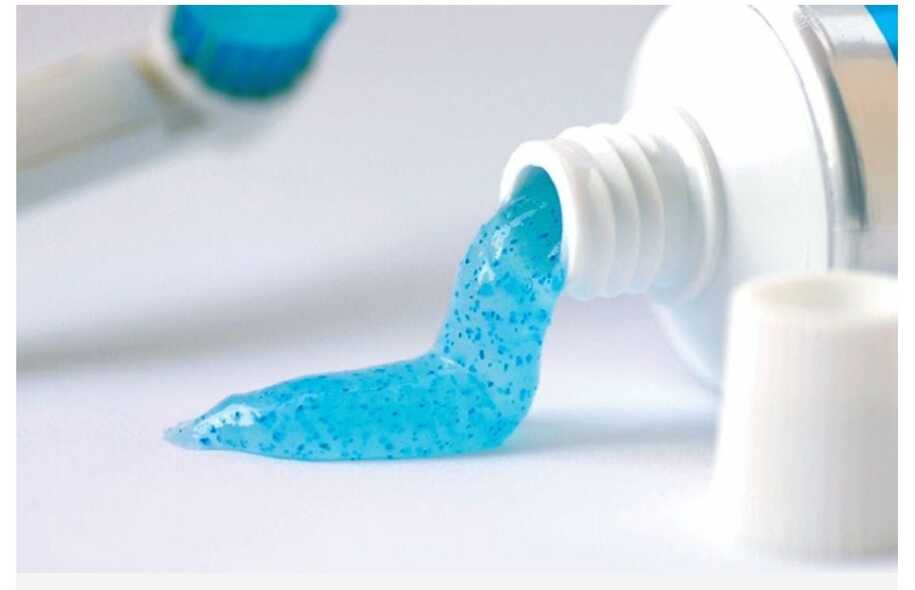
13. We Are Brushing and Flossing and Eating Plastic
Plastic is ubiquitous. Avoiding it while living on planet Earth is now impossible. You can lose your mind trying to avoid the microplastics and nanoplastics in our drinking water, food, clothing, furniture, and air. But it doesn’t mean we shouldn’t try a little. Most articles about avoiding plastic overlook the microplastics generated by brushing our teeth and flossing.
Dental floss is typically made from nylon. Given opaque manufacturing techniques, it may also contain bisphenol and pthalates. The act of flossing in tight spaces will cause the generation of microplastics in your mouth. These have been found in gum biopsies and contribute to gum inflammation. The bristles on toothbrushes are usually made from Nylon, and we can assume that the vigorous brushing of nylon filaments against our teeth produces nano and microplastics.
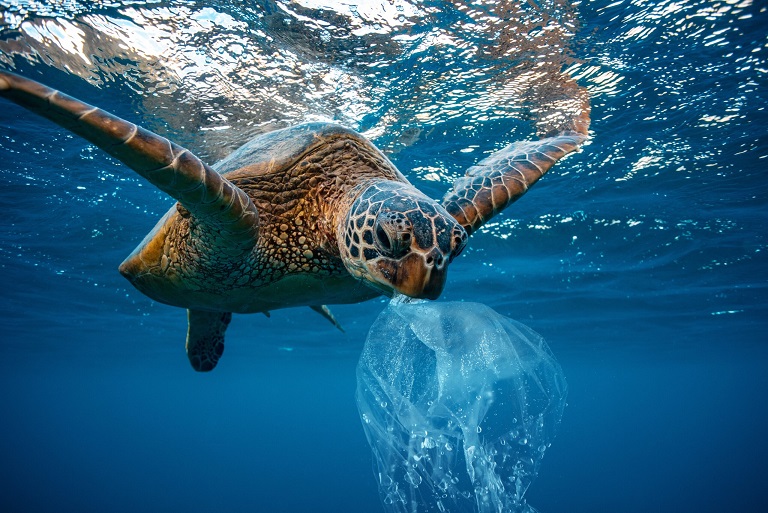
14. New Bilingual Science Books Enhance Marine Education in Caribbean Schools
BONAIRE, The Netherlands — Marine Conservation without Borders and Stichting Nationale Parken Bonaire have completed implementing their project “Novel Education Tools to Foster Local Ecosystem Sustainability Practices.” This initiative has produced innovative, multilingual education tools to enhance ecosystem education to benefit countries and territories across the region. The project focused on creating an accessible and locally relevant marine ecosystem for adults and kids in the Caribbean Overseas Countries and Territories.
These new resources include unique marine science books tailored to Bonaire and Turks and Caicos Islands primary and secondary schools. The books for Bonaire are written in Papiamentu and Dutch, while the Turks and Caicos books will be written in English and Kreyòl Ayisyen. The initiative is expected to impact students positively, similar to the positive impacts the materials have made on seafaring linguistic communities associated with the Mesoamerican Barrier Reef System.

15. Researcher Says Indonesia’s Marine Conservation Needs Improved Coastal Community Well-Being
JAKARTA, Indonesia – Marine conservation in Indonesia must go hand-in-hand with improved well-being for coastal communities, according to a study by the SMERU Research Institute. SMERU researcher Annabel Noor Asyah said the institute examined marine protected area (MPA) management, focusing on coastal communities’ conditions and challenges. The study found a more significant income disparity in villages near MPAs compared to other areas.
“This is because conservation area managers generally only have a background in marine management,” Asyah said. She emphasized the need for MPA managers to have expertise in both marine ecosystems and community development. The study also revealed that challenges faced by coastal communities vary across MPAs. Imam Fauzi, head of the Kupang National Marine Conservation Area (BKKPN), noted that coastal communities have diverse characteristics. Improving community well-being around MPAs requires considering local cultural factors, he said.
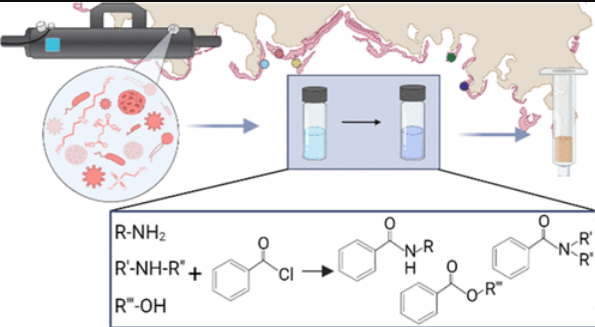
16. Oceanic Chemistry Lovers Unite! Benzoyl Chloride Derivatization Advances the Quantification of Dissolved Polar Metabolites on Coral Reefs!
Extracellular chemical cues constitute much of the life language among marine organisms, from microbes to mammals. Changes in this chemical pool are invisible signals of overall ecosystem health and disruption to this finely tuned equilibrium. The scope and magnitude of the chemicals involved in maintaining reef equilibria are largely unknown in coral reefs.
This study highlights the immense potential of chemical derivatization-based exometabolomics for quantifying labile chemical cues on coral reefs and measuring molecular-level responses to environmental stressors. Overall, improving our understanding of the composition and dynamics of reef exometabolites is vital for effective ecosystem monitoring and management strategies.
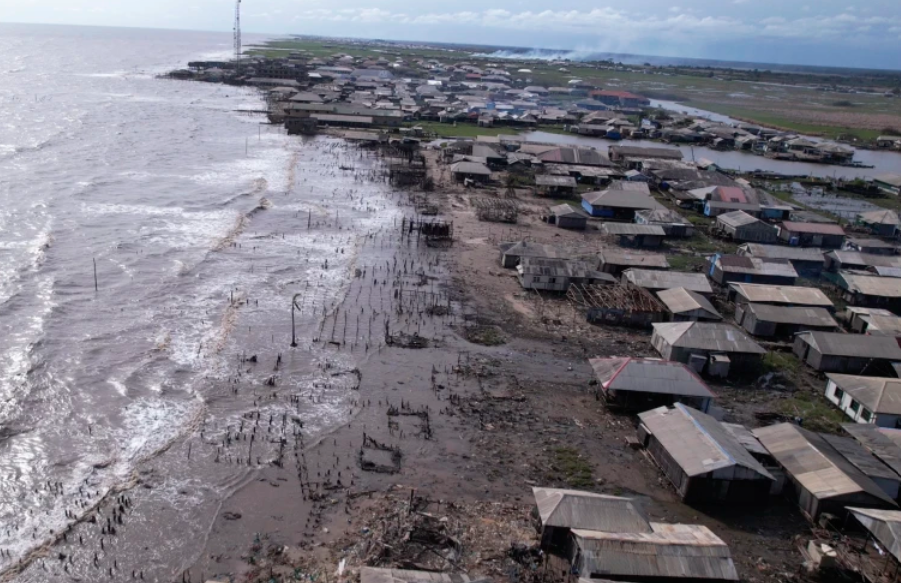
17. Meant to Be a Christian Utopia, This Nigerian Community Now Helpless Against Rising Seas
AYETORO, Nigeria—The coastal Nigerian community of Ayetoro was founded decades ago and nicknamed “Happy City,” but now, its remaining residents can do little against the rising sea. The Mahin mud coast, where the community is slipping away, lost more than 10 square kilometers, or 60% of its land, to the ocean in the past three decades. Researchers studying satellite imagery of Nigeria’s coast say several things contributed to Ayetoro’s disappearance.
Underwater oil drilling is one reason as resources are extracted, the ground can sink. Another is the deforestation of mangroves, which help anchor the earth, and the erosion caused by ocean waves. The Niger Delta Development Commission, a government body meant in part to address environmental and other issues caused by oil exploration, didn’t respond to questions from The Associated Press about efforts to protect the community’s shoreline.
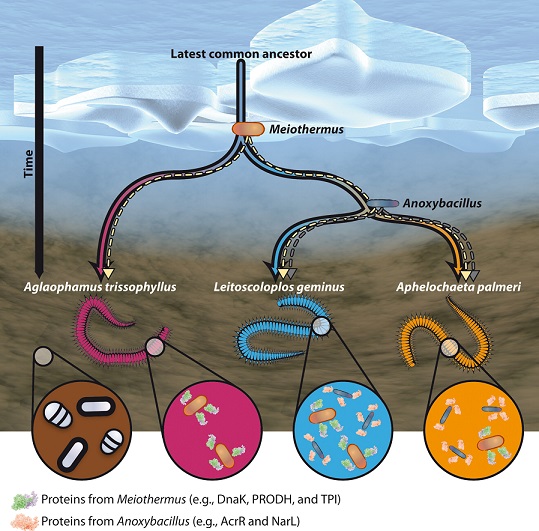
18. Resistance to Freezing Conditions of Endemic Antarctic Polychaetes Is Enhanced by Cryoprotective Proteins Produced by Their Microbiome
The Bottom Line Up Front: The wide suite of bacterial cryoprotective proteins found in Antarctic polychaetes may help develop nature-based biotechnological applications. The Details: Multicellular organisms in the oceans live in close association with their microbiomes, which provide their hosts with critical functions, including nutrient supply, defense mechanisms, and even additional metabolic pathways, thus representing an integral component of the holobiont, able to influence host physiology and increase adaptation to environmental conditions.
Microbiome-host interactions are far more widespread than previously thought and can notably influence the auto-ecology of marine organisms, playing a role in the whole ecosystem’s health.
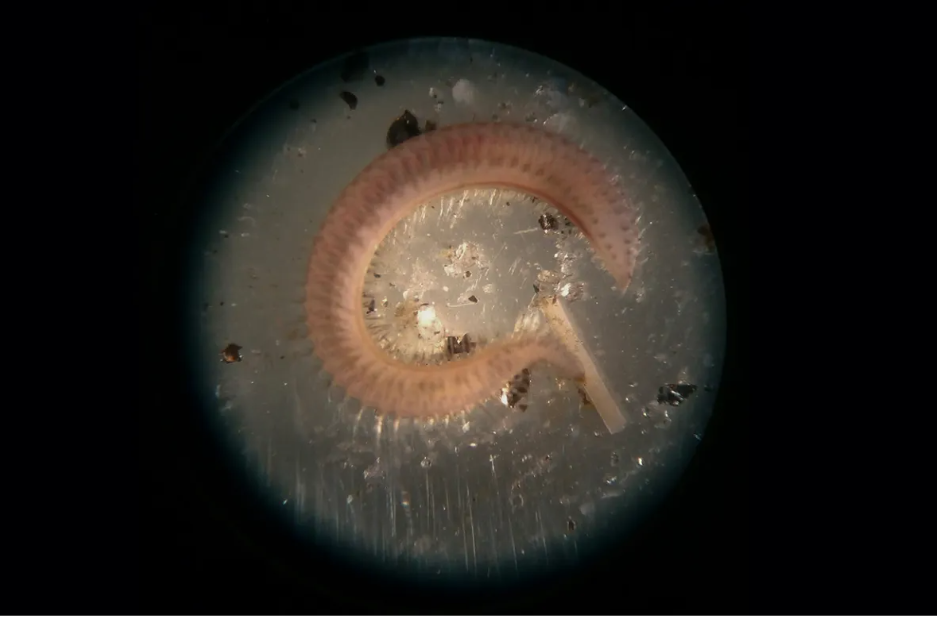
19. Beneficial Bacteria Help These Marine Worms Survive Extreme Cold
Antarctica – Antarctic marine worms survive with some help from their bacterial friends. Close relatives of earthworms, polychaetes are some of the most common animals on the ocean floor, but how these species survive the low temperatures of Antarctic waters has been a mystery. Other Antarctic species, like icefish, make their antifreeze proteins, “but most Antarctic organisms do not produce these proteins,” says Cinzia Corinaldesi, a marine ecologist at Marche Polytechnic University in Ancona, Italy.
Corinaldesi and colleagues reported that specialized bacteria living inside three different species of Antarctic polychaetes make proteins that help the worms survive freezing. The finding illustrates how essential microbes can be for their hosts, says Amy Apprill, a microbial ecologist at Woods Hole Oceanographic Institution in Massachusetts who wasn’t involved with the study. “Our knowledge of host-microbe interactions in the ocean is still minimal.”
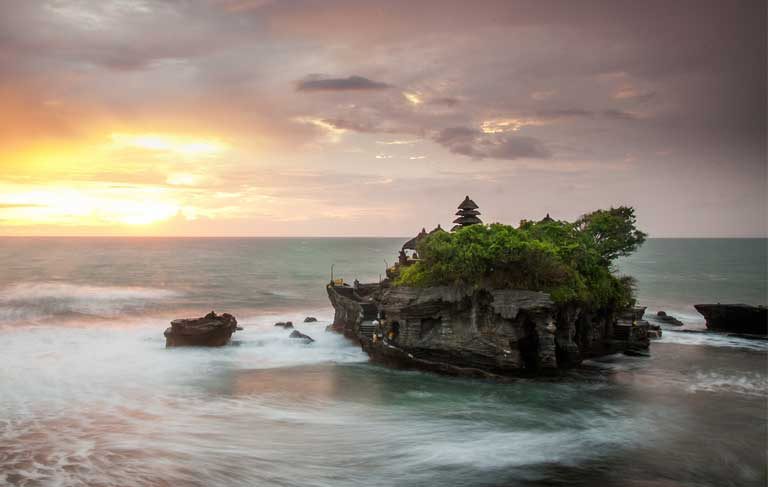
20. Bali’s Rapid Coastal Erosion Threatens Island’s Ecosystems & Communities: Study
BALI ISLAND, JAKARTA, Indonesia – A recent study revealed that Bali’s coastline shrank from 668.64 kilometers (415.47 miles) to 662.59 km (411.71 mi) between 2016 and 2021 due to human activities and wave circulation, at an average rate of -1.21 meters (3.97 feet) annually. The erosion and rising sea levels threaten the island’s ecosystems, infrastructure, and communities, which are economically and culturally significant.
Despite the erosion, there was a net land increase of 1.25 km2 (0.48 mi2) due to land reclamation and infrastructure development, though these efforts also posed environmental risks. The study highlights the need for integrated coastal management to balance environmental protection with the needs of coastal communities.
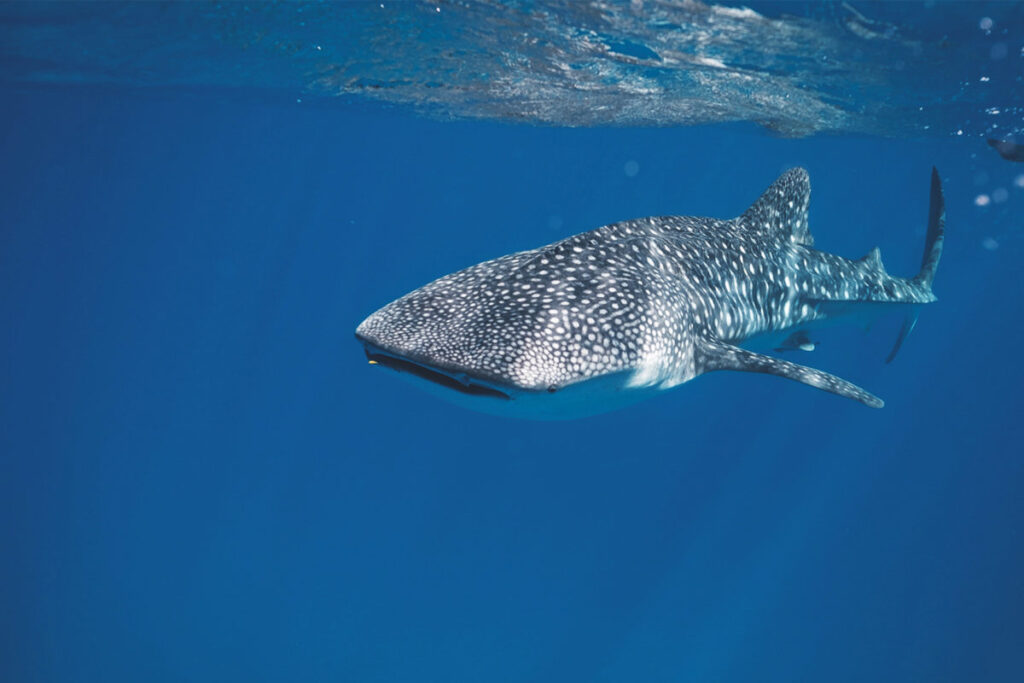
21. Murray, Larsen Introduce Bill to Reauthorize Local Marine Conservation Program
Skagit County, Washington—On Tuesday, Sen. Patty Murray and Rep. Rick Larsen introduced bills in Congress that would reauthorize a marine conservation program in Skagit County. The program, titled “Northwest Straits Initiative,” has a foundation arm that raises money and leads restoration projects in the state. Its commission arm coordinates, funds, and supports its seven-county marine resource committees, including one in Skagit County.
The Skagit Marine Resources Committee leads and collaborates on local projects to trap invasive green crabs, work on environmental education, monitor forage fish and kelp beds, restore Olympia oysters and shorelines, and train environmental volunteers, among other things. Led by Murray, the initiative was first federally authorized in 1998, but that authorization technically ended after six years. A panel in 2004 recommended reauthorization, but attempts at reauthorization in 2009 by Larsen and Murray, and by Murray again in September 2022, failed to pass.
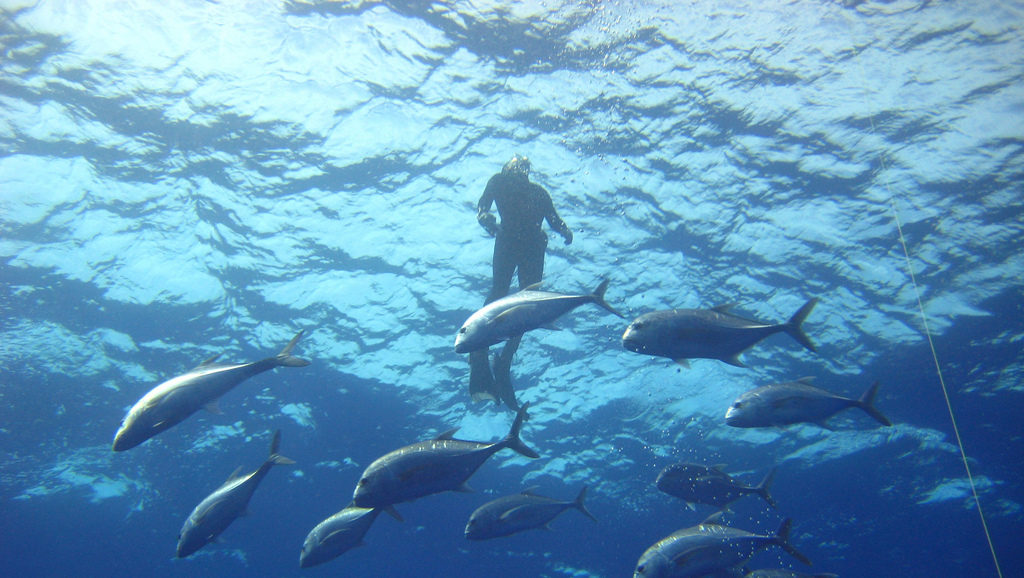
22. NSAC Calls for Enhanced Fisheries Conservation Measures Amid Mixed Reactions
STORA MIDDELGRUND OCH RODE BANK, Sweden – The North Sea Advisory Council (NSAC) has recently issued its advice regarding a draft Joint Recommendation (JR) from the Swedish Agency for Marine and Water Management (SwAM) on amending fisheries conservation measures in several marine protected areas. This recommendation aims to address the bycatch of harbour porpoises and enhance the protection of sensitive species and habitats in Stora Middelgrund och Röde Bank, Fladen, Lilla Middelgrund, and Morup’s Bank.
The Swedish Agency for Marine and Water Management (SwAM) proposed measures were discussed via a fast-track procedure by the NSAC Executive Committee on June 7, 2024. This prohibited fishing with gillnets and trammel nets (GTN) in the designated areas. This move aligns with efforts to reduce the accidental bycatch of harbour porpoises, a significant concern in these regions.
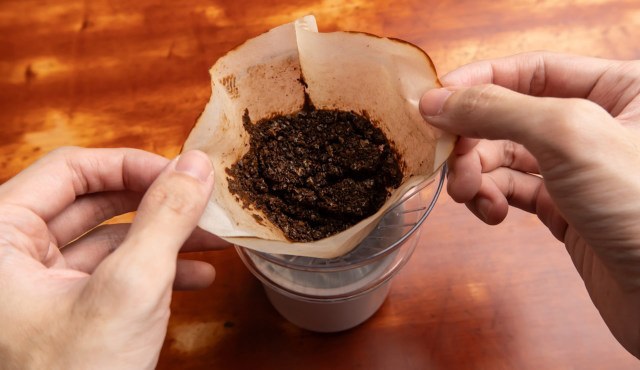
23. Scientists Add a New Twist to the Many Afterlives of Coffee Grounds: Toxic Cleanup
Brazil – Excess quantities of bentazone—a herbicide often used on peas, beans, and potatoes—move effortlessly through water and soil, where it has been detected in unsafe quantities for years worldwide. The chemical endangers ecosystems and human health. Researchers have found that the millions of tons of grounds discarded annually could help to soak up this toxic agricultural pollutant. Researchers dried coffee beans at high heat, transforming them into ash.
They added zinc chloride and nitric acid, two ingredients that help ‘activate’ the carbon abundant in the coffee grounds. This activation increased the porosity and, therefore, the surface area of the carbon in the grounds, effectively turning it into a sponge-like material for bentazone. Their tests showed that the grounds could slurp 70% of the chemical from the water.
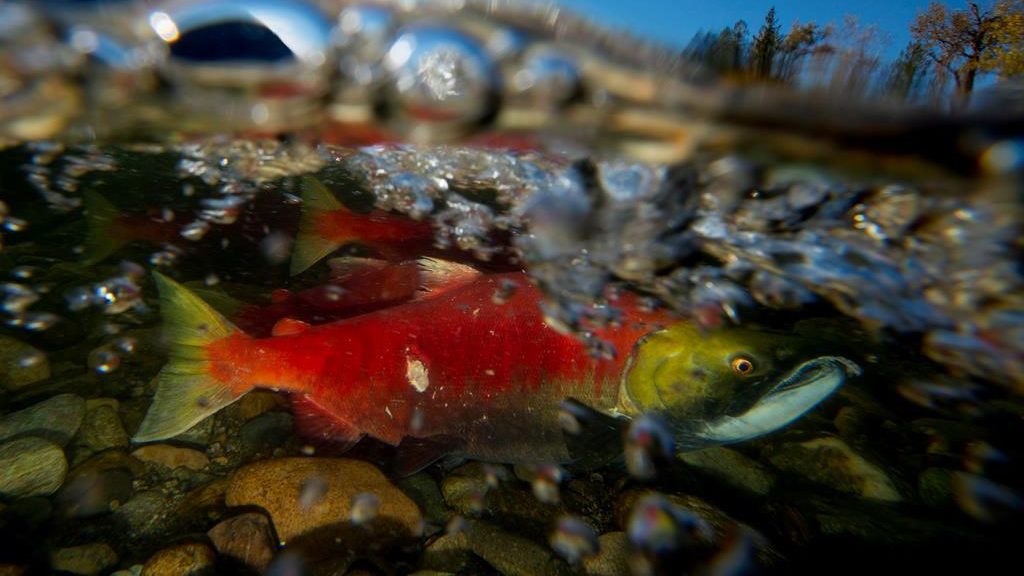
24. Feds, B.C. Promise $5.7M for Salmon Conservation Projects on Vancouver Island
British Columbia – On Thursday, the two levels of government earmarked $39.4 million for 15 salmon protection projects in B.C. – five located on Vancouver Island – through the British Columbia Salmon Restoration and Innovation Fund (BCSRIF). According to the federal government, the fund is intended to support salmon “habitat protection and restoration,” which benefits both the environment and the seafood sector of B.C.
On Vancouver Island, the five projects receiving a combined $5.72 million in funding range from research to habitat restoration work. The largest share, at $1.99 million, is going to the Coastal Restoration Society, based out of Port Alberni. A complete list of the 15 recipients across B.C. can be found on the Government of Canada website.
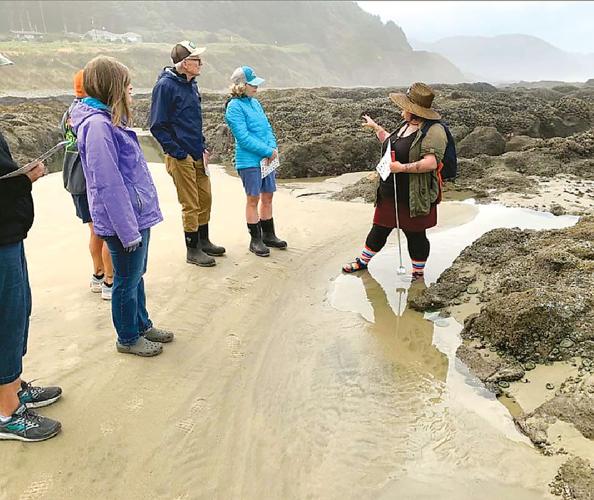
25. Tidepool Ambassador Program Promotes Conservation, Education
NEWPORT, Oregon—The Cape Perpetua Collaborative (CPC) is excited to announce the launch of the 2024 Tidepool Ambassador Program, a unique initiative to promote coastal conservation and education in the Cape Perpetua area. The Tidepool Ambassador Program provides free, guided tidepool tours at Yachats State Park, Bob Creek, and Heceta Head during low tide periods throughout the summer months. Tour times tend to be early in the morning, as the tides dedicate them.
Participants of all ages and backgrounds are welcome. Participants must be able to move on unstable and possibly slippery surfaces. Unfortunately, pets may not join tours. Tidepool identification guides are available in English and Spanish. Trained guides will lead participants through the diverse and vibrant tidepool ecosystems, offering insights into the rich marine life and the importance of protecting these delicate habitats.
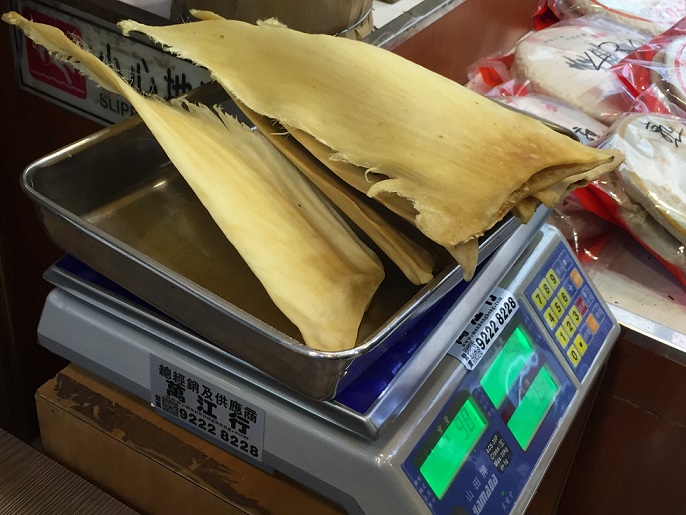
26. Sheraton Grande Walkerhill Invites Guests to Explore Shark Fin Culinary Options
SEOUL, South Korea – The Sheraton Grande Walkerhill’s Gold Dragon restaurant in Seoul is hosting a “Shanghai Cuisine Promotion” until November 16, featuring an array of Shanghai-inspired cuisine. The promotion highlights “steamed shark fin,” priced around $76.92 per serving. Additionally, patrons can opt for the “steamed dry shark fin,” costing about $115.38 per serving. The promotion, emphasizing traditional Shanghai flavors, invites guests to explore a taste of Shanghai through these meticulously prepared seafood offerings.
Editorial Comment: The Sheraton Hotel Chain is currently promoting a culinary event that prominently features shark fin soup despite widespread awareness of its unsustainability and the severe risks it poses to both shark populations and broader marine ecosystems.
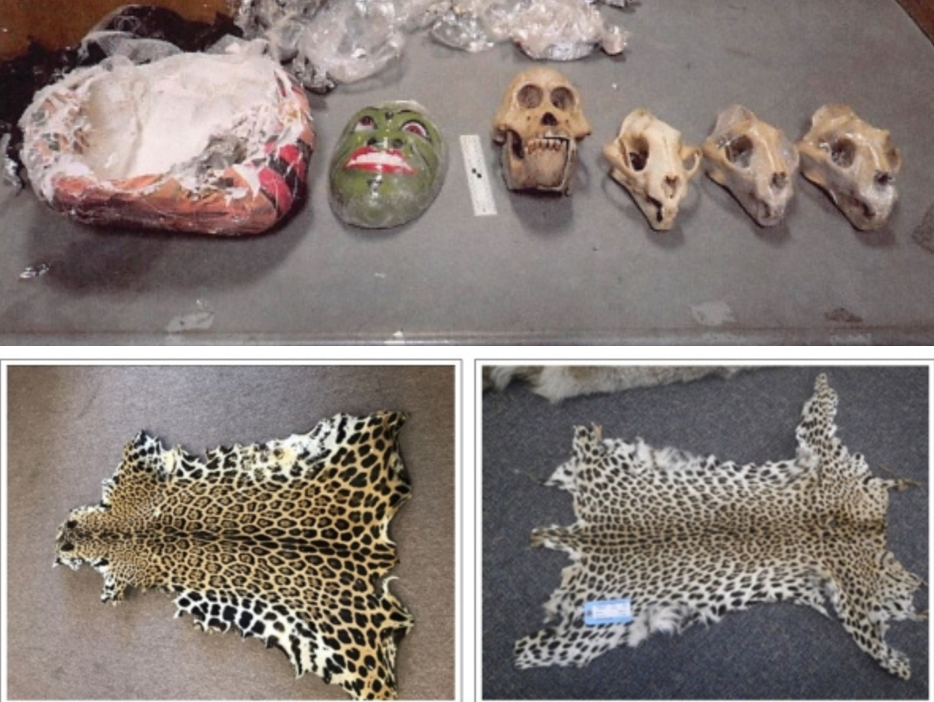
27. From Polar Bears to Narwhals: Massachusetts Trafficking Case Highlights Global Issue
BOSTON, Massachusetts – A Massachusetts man, Adam Bied, has been charged with wildlife trafficking, including illegally trading in parts of various protected species. Among the over 100 seized items, significant parts include a polar bear skull, a narwhal tusk, an otter skeleton, a harp seal skull, a South American fur seal skull, and an elephant seal skull. These parts were obtained in violation of U.S. laws and international treaties designed to protect endangered and threatened species. The U.S. government has also initiated a civil forfeiture to recover these wildlife parts.
Editorial Comment: The Sea Save Foundation has been a constant participant in the Convention on International Trade of Endangered Species. (CITES) This seizure demonstrates the successful enforcement of that treaty.
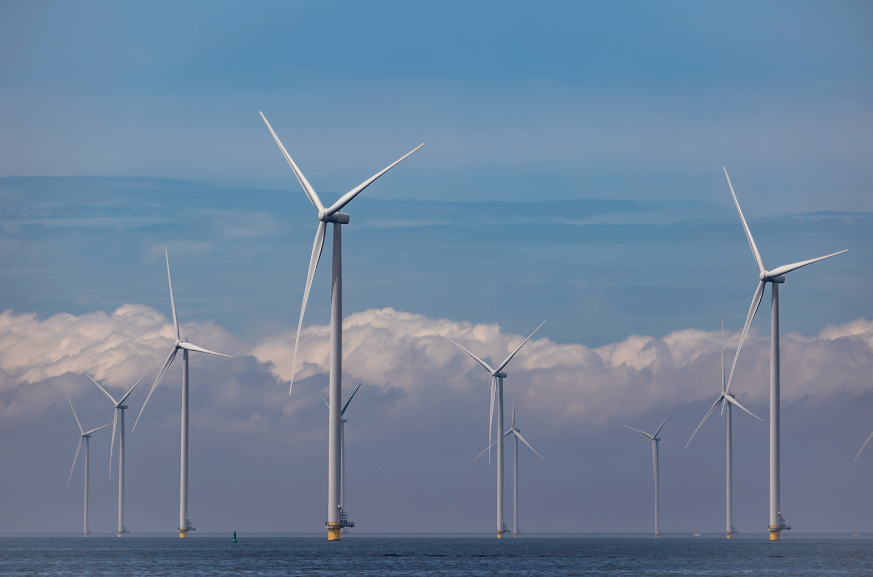
28. TotalEnergies Receives Maritime Concession for 3.5 GW Offshore Wind Hub in Germany
Germany—TotalEnergies, as shareholder of Offshore Wind One, has received the maritime concession N-11.2 from the German Federal Network Agency following auctions held in Germany. The concession is for TotalEnergies’ 3.5 GW offshore wind hub in the German North Sea. TotalEnergies will gain from the synergies between this new lease and the 2 GW concession N-12.1 won last year.
Offshore Wind One’s project is located in the North Sea, around 120 kilometers northwest of the German island of Heligoland. TotalEnergies said concession N-11.2 (1.5 GW) covers an area of around 156 square kilometers. As part of this award, Offshore Wind One will pay € the German Federal government € 196 million by June 2025 at the latest. Germany will use this for marine conservation and promoting environmentally friendly fishing.
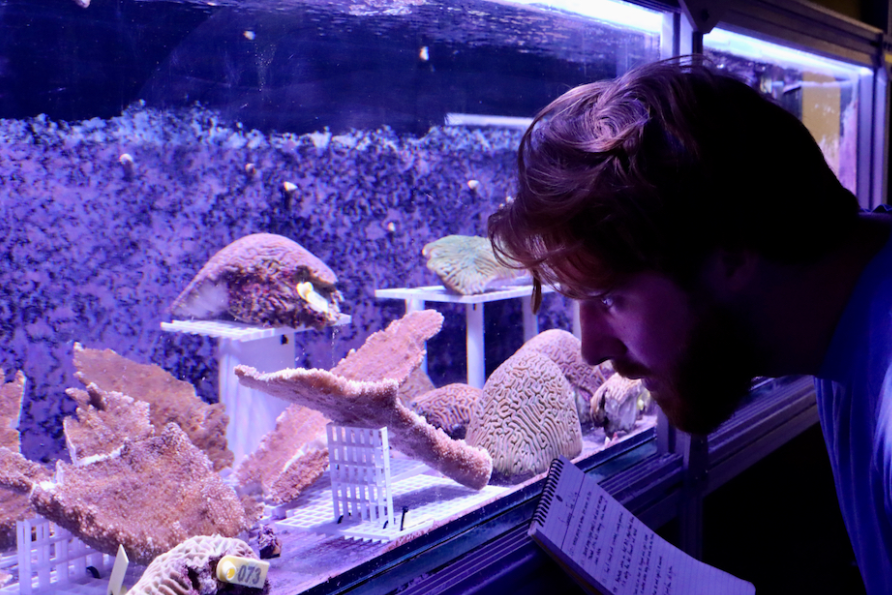
29. Matchmaking Scientists Look to Honduras for New Coral Parents to Help Florida’s Reefs Survive Climate Change
MIAMI, Fla — In a groundbreaking effort to combat the devastating impacts of rising ocean temperatures on Florida’s coral reefs, scientists from the University of Miami Rosenstiel School of Marine, Atmospheric, and Earth Science traveled to Honduras to source new coral parents to help Florida’s corals survive climate change. This scientific initiative aims to study and breed corals from a unique site in Tela Bay, off the northern coast of mainland Honduras, where corals routinely experience temperatures that would typically cause widespread coral bleaching elsewhere.
These reefs also experience freshwater impacts from a local lagoon and are often characterized by turbid, low-visibility conditions. Yet corals in the Bay are thriving and have shown tremendous resilience to heat stress and disease. They will try to breed these with Florida’s surviving elkhorn corals to produce new baby corals that might survive Florida’s warmer future.
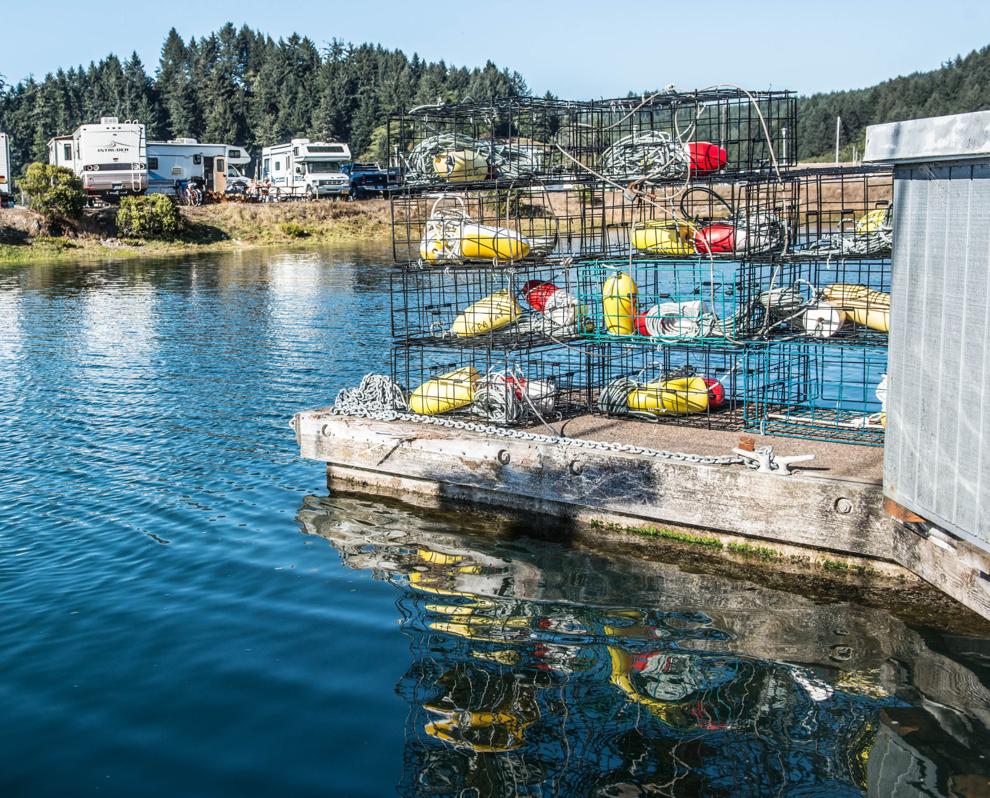
30. More Areas Reopen for Shellfish Harvest as Bay Clams Open on North Coast, Razor Clams on South Coast
SALEM, Ore — The Oregon Department of Agriculture and the Oregon Department of Fish and Wildlife announced new shellfish openings after tests showed clams in these areas are safe to eat. Bay clamming has been reopened on the north coast and is now open from the Washington border to Cascade Head. Levels of the marine biotoxin paralytic shellfish poison (PSP) have tested below the closure limit on two consecutive rounds of testing.
Razor clam harvesting is closed from the Yachats River to Cape Blanco. Bay clam harvesting is closed from Cascade Head to the California border. Mussel harvesting remains closed along the entire Oregon coast. Oregon Department of Agriculture will continue to test for shellfish toxins weekly, as tides and weather permit. Reopening an area closed for biotoxins requires two consecutive tests with results below the closure limit.
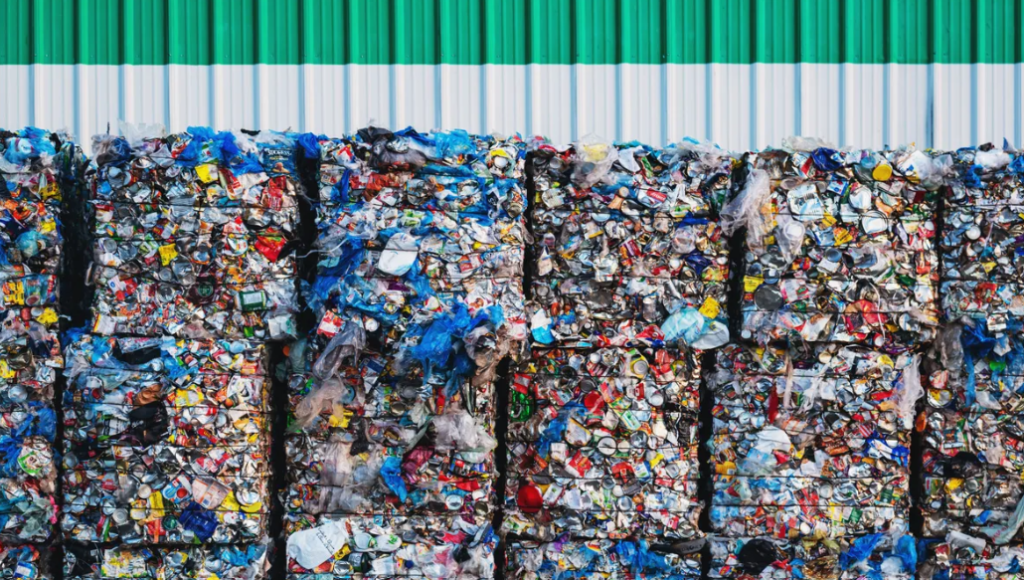
31. Massachusetts Advances Plastic Bag Ban, Lawmakers Consider Packaging EPR
Massachusetts — The Massachusetts Senate has passed the Plastics Reduction Act, which calls for numerous measures, including banning carry-out plastic bags and preventing restaurants from automatically giving out plastic utensils and straws. On plastics, a large portion of Massachusetts municipalities already regulate plastic bags, a Senate release noted. A state law would standardize those approaches.
“The Plastics Reduction Act will prevent billions of single-use plastic bags, bottles, cutlery, and wipes from clogging up our environment, pipes, and landfills yearly. This is a major win for our climate, our wildlife, and our health,” said Sen. Rebecca Rausch. Environmental groups praised the bill’s advancement. The state House is expected to introduce its version of the climate bill as early as this week, but it’s unclear how similar it could look to the Senate’s version or whether a bottle bill update would be included.
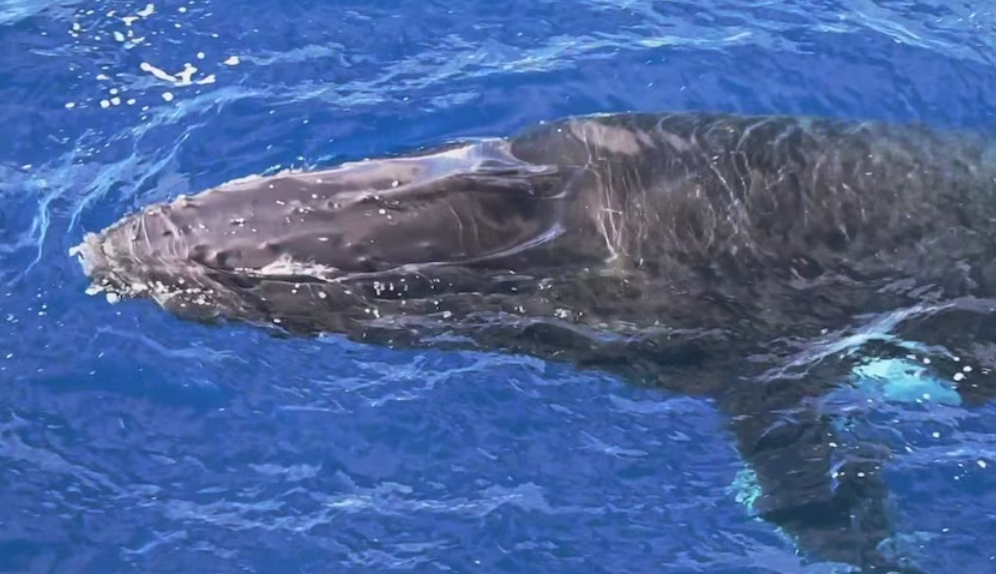
32. AI Helps to Save Critically Endangered Marine Animals
Artificial intelligence (AI) is becoming more common among marine ecologists and conservationists. The ecologist and bio-acoustician has made hundreds of thousands of hours of audio recordings of rare and critically endangered marine mammals. The sound records provide crucial clues about the habits and whereabouts of whales, dolphins, and seals that are often heard but rarely seen.
This is where AI comes in. Each marine species the researchers track has a unique soundwave pattern they make, which an AI algorithm can be trained to spot. The technology is more than just a good listener; it can also see. A CCTV-like camera was fixed to the RV Investigator, which has been learning to “count” seabirds in the Tasman Sea, a task previously performed manually. However, there are drawbacks to the new technology, and humans still have a role to play.
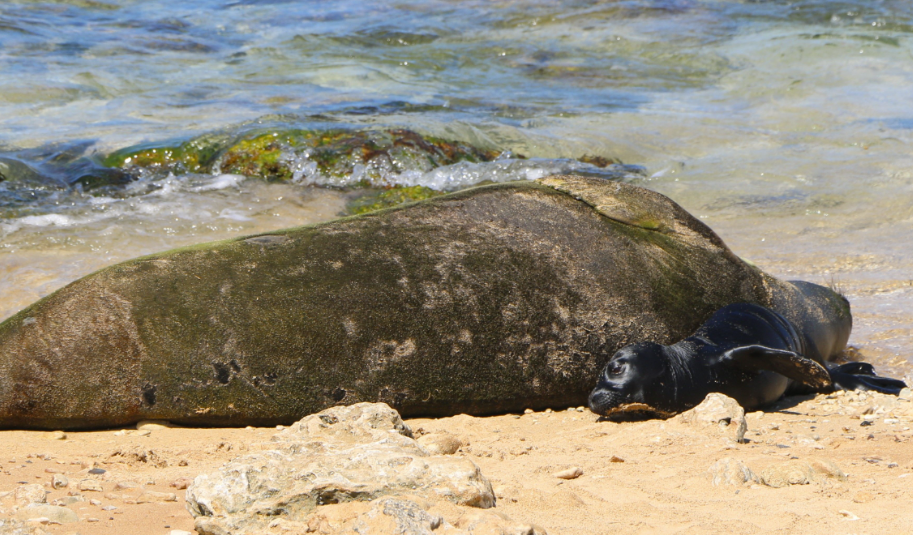
33. Rocky – the First Monk Seal on Record to Give Birth at Popular Hawaiian State Recreation Area
HONOLULU, HI – Hawaiian monk seals are among the most endangered seals in the world, though their numbers have been rising in the Hawaiian Islands in recent years. Numerous federal and state laws protect them. Hawaiian monk seal Rocky gave birth to a pup on a beach at Sand Island State Recreation Area (SRA) on O‘ahu. Experts are concerned about Sand Island’s number of off-leash dogs and feral cats.
Dogs have been known to attack resting monk seals, and cats are linked with the spread of disease. Hawai‘i Marine Animal Rescue has fenced around the entire cove where the seals are resting. Volunteers will be on hand to educate park users about monk seal behaviors and the need for people to give them a wide berth.
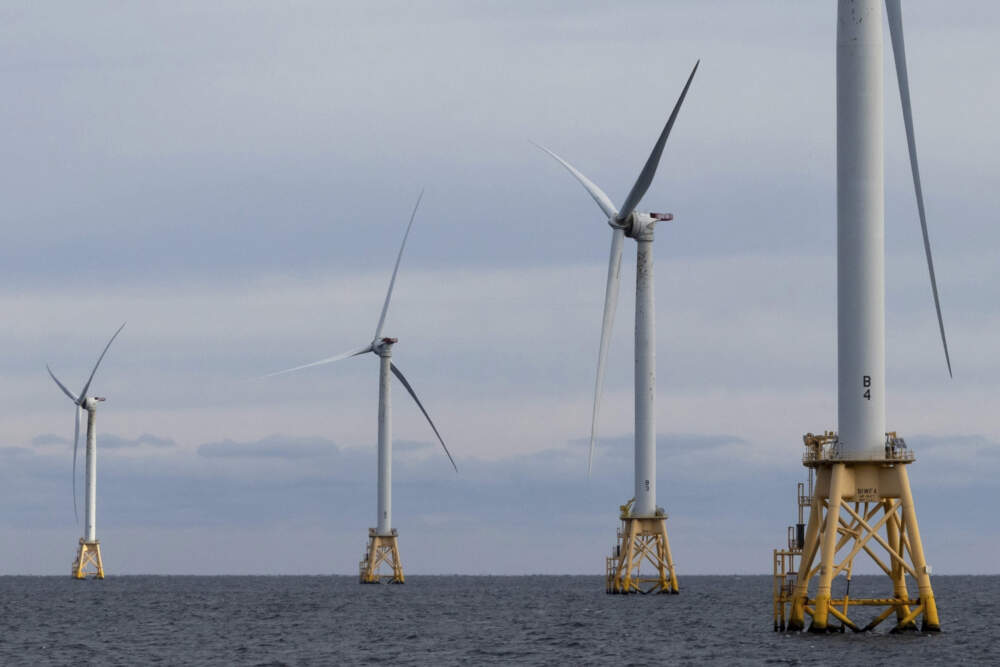
34. Massachusetts Aimed at Expanding the Adoption of Renewable Energy to Meet Its Climate Goals by 2050
Massachusetts – Massachusetts Senate approves bill to expand reliance on renewable energy. However the bill still needs the approval of the Massachusetts House before heading to Gov. Maura Healey’s desk. Supporters say the proposal will help lower utility bills by directing providers to offer discounted rates to consumers. The bill would also ban “competitive electric suppliers,” but the companies have argued that they can help consumers save money and purchase renewable energy.
The bill would also expand electric vehicle infrastructure by making it easier for local and state entities to purchase EV charging equipment. It is intended to help speed up solar, wind, storage, and other clean energy infrastructure projects by setting 15-month permitting deadlines for larger projects. The approved bill will help Massachusetts meet its climate goals, including reaching net zero greenhouse gas emissions by 2050.
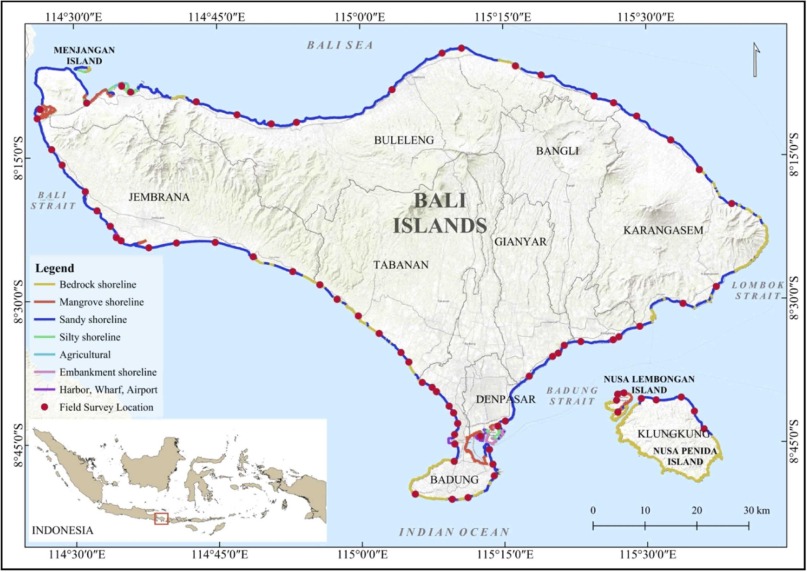
35. Spatiotemporal Analysis of Shoreline Change Trends and Adaptation in Bali Province, Indonesia
BALI PROVINCE, Indonesia – Bottom Line Up Front -During the study period, the shoreline in Bali Province decreased from 668.64 km to 662.59 km at an average rate of -1.21 m/yr due to continuous erosion. On the other hand, human-caused shoreline advancement, such as land reclamation, harbor, and airport construction, has resulted in a net land increase of 1.25 km2. The protection strategies include structural interventions such as breakwaters and seawalls.
The finding provides valuable information that will be helpful for coastal planning and management to reduce the loss of the economy and safeguard the future coastal environment in Bali’s coastal areas. In Conclusion – Shoreline change is a dynamic and complex phenomenon influenced by various natural and anthropogenic factors. Monitoring these changes is crucial for understanding coastal dynamics, managing resources, and mitigating the impacts of coastal erosion and accretion.
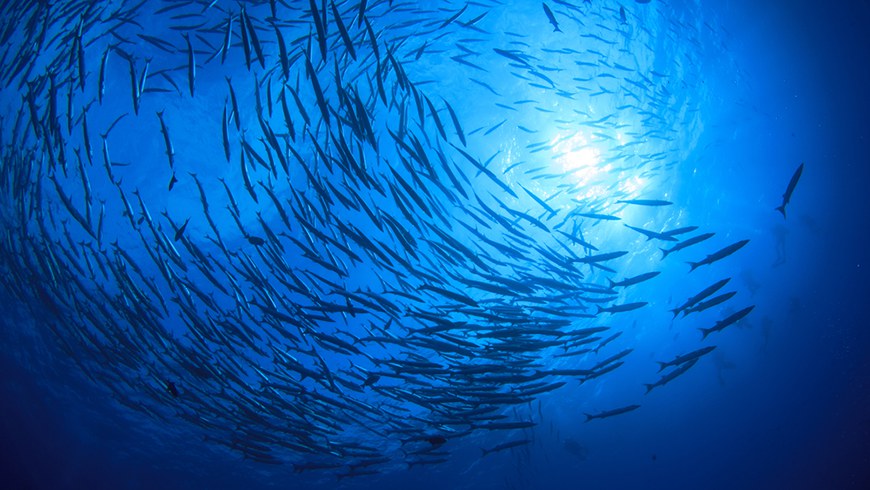
36. Jamaica Committed to Resilient Ocean Ecosystem
Jamaica – Bertrand Smith, Director General of the Maritime Authority of Jamaica, has reiterated Jamaica’s commitment to fostering a resilient ocean ecosystem for future generations. Speaking at a recent World Oceans Day, Mr. Smith outlined Jamaica’s proactive measures in marine conservation, including implementing a global initiative supported by the Food and Agriculture Organisation (FAO) and the International Maritime Organisation (IMO) to combat marine litter from transport and fisheries sectors.
The Director General also noted the country’s compliance with the 2023 IMO Greenhouse Gas (GHG) Emission Strategy. “As an active member of the International Maritime Organization, Jamaica commits to global efforts aimed at decarbonizing shipping, with ambitious goals to achieve net-zero emissions by 2050,” he said. Recognizing the urgent need for action, Mr. Smith highlighted the pivotal role of youth leadership in driving sustainable change.




